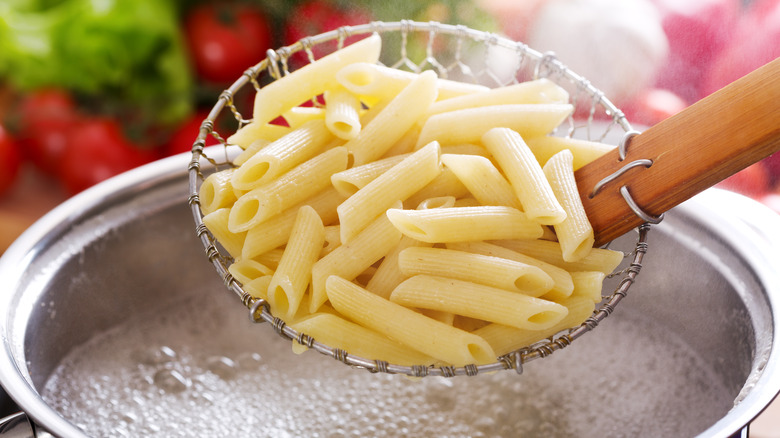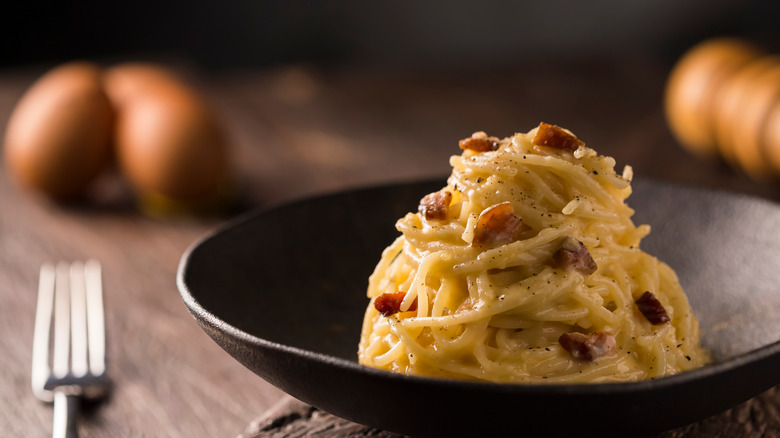Why Boiling Too Much Water Could Be Affecting Your Pasta
There are few people out there who would say pasta isn't one of the secrets to living "la dolce vita." Pasta is among the world's most popular foods (via OxFam International) for very good reason. How to prepare the perfect pasta, however, is a much more hotly-debated topic. In fact, there are whole subreddits and Twitter profiles dedicated to the perceived sins committed against the world's greatest carbohydrate.
Any seasoned at-home chef likely already knows to heavily salt their pasta water and to add some of that water to their sauce, but most probably still overlook another key step in preparing the perfect pasta. Despite some folk wisdom, the secret isn't adding oil to your pasta water. In fact, it's not about adding anything at all. It has more to do with ratios, mathematics, and that sweet lovely reason we're all so addicted to pasta in the first place: carbohydrates.
How too much water changes your pasta sauce
The amount of water in which you cook your pasta is a huge factor. According to The Daily Meal, this is because when you're adding that splash of pasta water to your sauce, you want to add more starches than you do water.
Starch is a common type of carbohydrate that's found in the seeds of grains like wheat, which is used to make pasta (via Medical News Today). Boiling pasta releases its starches into the water. When you add that water to your sauce, it's those starches that make sure that sauce sticks to every nook and cranny of your pasta. Starting with an abundance of water, however, will dilute those starches, and you'll end up adding excess water to your sauce instead. Using the perfect amount of pasta water concentrates the starches and helps to create a velvety smooth sauce with a sheen you'd find in a professional kitchen.
What's the perfect ratio of cooking water to pasta? According to the 1948 cookbook "The Art of Italian Cooking" by Maria Lo Pinto, the standard pasta-to-water ratio is around five to eight quarts of water per pound of pasta. Just remember that longer pasta varieties like spaghetti and linguini will call for slightly more water than your standard rigatoni or penne pasta, and with a little trial and error, you'll be on your way to preparing perfect dishes like this Sausage and Butternut Squash Pasta, a Tofu Pesto Pasta, or this quick and easy Bucatini Cacio e Pepe.

